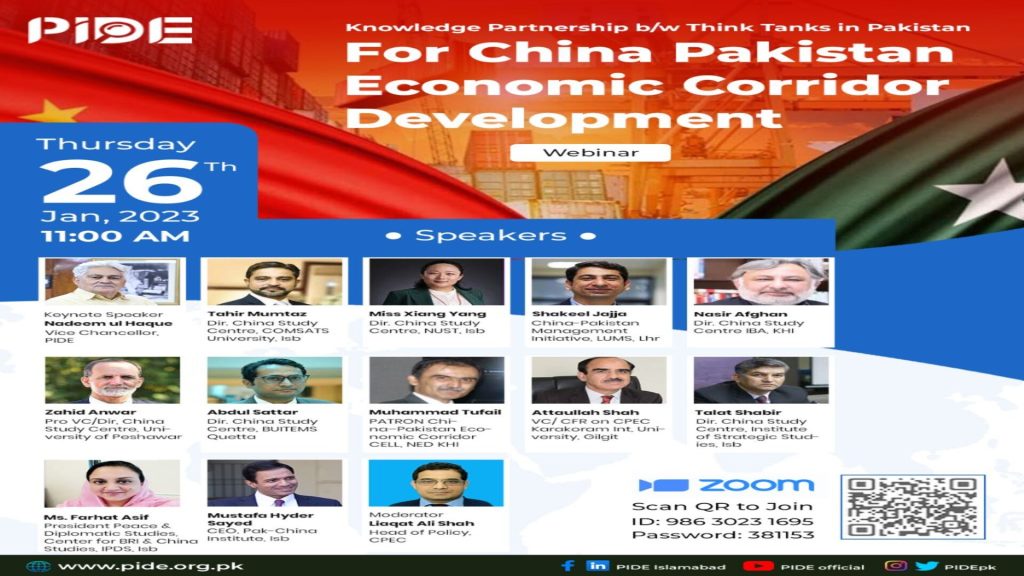(Staff Report):-
The development of strong bilateral ties between Pakistan and China through research and development, and think tank exchanges is crucial for the continued growth of the countries’ relationship.
The upward trajectory of China-Pakistan Economic Corridor (CPEC) is a reflection of the increasing importance of ideas exchange and economic cooperation in shaping the future of the region.
Both nations have a long history of mutually beneficial economic partnerships, and these efforts to strengthen cooperation in research and development will further solidify that relationship.
However, increased exchanges between think tanks from both sides are the need of the hour. China has played a key role in creating economic opportunities in the region, along with opening new avenues of bilateral and multilateral collaboration through its ventures like BRI and CPEC.
This has resulted in substantial political, economic, and trade cooperation. These were the remarks by the speakers during the webinar titled “Knowledge Partnership between think tanks in Pakistan for China-Pakistan Economic Corridor Development.
The Webinar was organized by the Pakistan Institute of Development Economics (PIDE). It aimed to discuss the long-standing, strong relationship between Pakistan and China in terms of their cooperation in trade and economy through CPEC.
In his opening remarks, the keynote speaker Nadeem ul Haque, Vice Chancellor of PIDE said that both countries enjoy a strong All Weather Strategic Partnership and Friendship with exemplary bilateral cooperation.
CPEC is the epitome of such cooperation, thriving in the length and breadth of Pakistan. He also emphasized the strong collaboration in trade and economic exchange between both countries.
While Farhat Asif, President of the Institute of Peace and Diplomatic Studies, spoke about the disconnect between academics and industries in not only CPEC but also BRI. As a result, the latest requirements have been unable to be met.
She suggested that to remove this disconnect, a continuous and persistent engagement between the two sides should be facilitated by both governments, with PIDE being the center point to connect the think tanks from the two sides.
The event was also attended by Dr. Tahir Mumtaz, Director of the China Study Center at COMSATS University Islamabad, Xiang Yang, the Director of the China Study Center at NUST, Dr. Zahid Anwar, Pro Vice-Chancellor and Director of China Study Center, University of Peshawar, and other distinguished guests.





